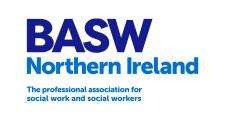Social workers call on NI Assembly to Remove the Universal Credit Two-Child Limit

The British Association of Social Workers Northern Ireland (BASW NI) is urging members of the Stormont Assembly to support the Opposition Day motion on Tuesday 16 April calling on the Minister for Communities to present a plan to remove the Universal Credit two-child limit.
The two-child limit affects families that receive the child element of Universal Credit (UC). Prior to April 2017 support was available for all children in low-income families. Third, or additional, children born after 6 April 2017 now only qualify for the child element of UC in a small number of exceptional cases.
The result is that families affected by the limit lose out on £3,455 per child per year for third, or subsequent, children born after 1 April 2017.
Research published in December 2023 by the End Child Poverty Coalition indicates 10% of children in Northern Ireland are affected by the two-child limit.
Speaking ahead of the debate, BASW NI Policy Communications and Public Affairs Lead, Andy McClenaghan said: “social workers witness, first-hand, the impacts of poverty on children, families, and individuals across our society—it is a major factor in contributing to problems which require intervention from social services.
“The impacts of poverty are devastating. For example, the UK-wide Child Welfare Inequalities project found that children living in the most deprived areas of Northern Ireland are six times more likely to be placed on the Child Protection Register and are four times more likely to become looked after by social services than those in the most affluent areas”.
The costs associated with poverty are enormous, both in human and financial terms. Taking the example of looked after children, in 2021 the average annual cost of a foster care placement was £24,000 and the average cost of keeping a child in a residential children’s home was £265,000 per year.
These costs should be considered in the context of the growing number of children looked after by social services. The most recent figures published by the Department of Health indicate that in October 2023 there were 3,941 children looked after by social services. This represents a 17% increase since before Covid and a 35% increase since 2013/14.
Growing up in poverty also heightens the prevalence of Adverse Childhood Experiences, with associated increased long-term costs not only for social work services but also for the health service. It has impacts in terms of educational under achievement, with associated costs to the education system, social security, and economic development. It also leads to more young people becoming involved in antisocial behaviour and crime, resulting in additional costs for the criminal justice system.
The Department for Communities (DfC) Northern Ireland Poverty and Income Inequality Report (2022-23) published in March 2024, indicates rates of poverty have increased across Northern Ireland.
The impact is greatest on children. The DfC statistics indicate that the percentage of children living in relative poverty in NI in 2022/23 was 24%, up from 18% in 2021/22. The percentage of Children living in absolute poverty rose from 15% to 19% over the same period.
Andy finished by saying: “We know that rates of poverty are rising and this not only impacts lives, it also costs the public purse. A recent report from the NI Audit Office, Child Poverty in Northern Ireland, estimates the cost of child poverty in the region to be between £825m and £1bn per year. In the context of constrained public finances, we are simply wasting our resources by failing to tackle the root causes of poverty. A key first step is for the NI Executive to remove the two-child limit. We simply can’t afford not to take action.”
ENDS
Contact:
Andy McClenaghan, BASW NI Public Affairs, Policy and Communications Lead
07702 517560 / a.mcclenaghan@basw.co.uk